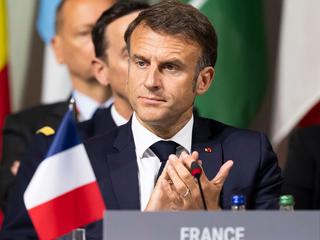Macron risks diminishing Europe, and France within it, by leaving the door open to a party traditionally militantly anti-European …
The riots in France have diminished, but the burning issues remain

While the violence may have calmed down for now, writes Richard Ogier, the country must make fundamental changes to avoid repeating the mistakes of the past
Protests, riots: is France still a good place to live?

A joke on social media currently is that, if you can avoid the civilian unrest, France is still a great place to live: for the food, for the wine, and for the retirement at 64. Millions of Europeans plan to emigrate.
If you’ve seen images this week of black-clad young men running poles into Paris shop windows, and sworn you heard that the trigger was a plan to raise the retirement age to 64, you heard right. It is currently 62 in France. But economists say the reform, in stages to 2030, won’t balance the pension budget by that target date anyway …
Together apart: with no majority, Macron has to rethink his and France’s future
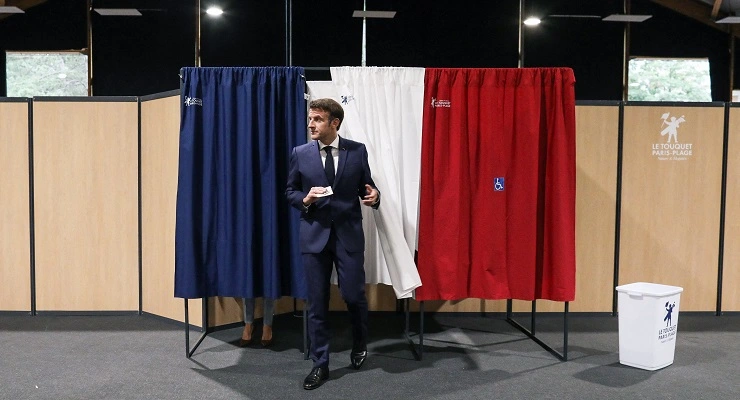
The metaphorical victory trumpets are sounding for almost all French political parties after the weekend legislative elections — except Emmanuel Macron’s depleted movement, Ensemble (Together), that is. It took a blasting from both the far right and left, to the point that it may now be hard to keep the presidential show on the road.
Macron was comfortably reelected president two months ago, but on Sunday he lost his absolute majority in such spectacular terms that he’ll have to rearrange and substantially recast his program for the next five years. But how and with whom?
Crazy world of politics as Macron’s challenges move from Right to Left

If you were an alien from beyond the planets suddenly arriving in France, you’d be witness to some of the Earth’s most extraordinary landscape and architecture. And some of its most dramatic, convoluted politics.
Seven weeks ago, French President Emmanuel Macron won re-election against Marine Le Pen, the head of a party, which is really a family dynasty, known as the far-right Rassemblement National (National Rally). On Sunday, Macron is facing the final vote in parliamentary elections he needs to win to govern effectively against, notably, a new group and its far-left leader, Jean-Luc Mélenchon.
Even Earthlings foreign to France can be mystified and fatigued by the machinations of the electoral system. After Macron’s two-round re-election in the présidentielle, the législatives ask voters to return to the ballot box for an excruciating third and fourth time to choose their MPs. Increasingly, they don’t. The Abstention rate for the first round on June 12 was 52.49%, a record high.
Freshly re-minted as president, Macron pledged to come down from the mount of the Élysée Palace in Paris to the regions to be “with you” (the people, his election slogan), but has made few announcements and taken no new major policy initiatives. At the same time, his key lieutenants have slammed the Mélenchon unity ticket that millions of people have already voted for.
The “Nupes” as they’re known — like nuptials, relating to mating and marriage — won more votes than the president’s centrist “Ensemble !” grouping in voting last weekend (that third time at the ballot box). So the question now is whether “Ensemble !” can secure a clear majority in the run-off on June 19.
Since the presidential election, the big political story in France has been Mélenchon’s fancy footwork in pulling together the left-wing parties as “Nupes”: socialists; greens; communists and his own anti-capitalists. But he’s not only succeeded in formalising the union, he’s managed to impose his views upon it. As a French news magazine editor rued last week, what used to be known as the far left is now just “The Left”.
That reality means that France is taking itself further out on a limb. Germans defied the idea that social-democracy is incapable of meeting Europe’s current challenges when Olaf Scholz was chosen by delegates to succeed Angela Merkel as chancellor last year, alongside the centre-left in power now in Spain, Portugal, Malta and every Scandinavian country, in Italy, Belgium and Luxembourg as part of coalitions and, beyond Europe, in Canada, New Zealand and Australia since last month.
To be fair, a unity ticket of the left is clearly desired by many French voters. Perhaps the left in France is like the left elsewhere, only more so (thus more ‘authentic’?): always a plurality of forces, opposing views and rapprochements. And for these legislative elections, at least, disparate elements have managed to unite. Before the poll, a key consideration was whether the radicalised “Nupes” could attract moderate left voters, and the answer, so far, is yes.
The problem is that areas of genuine convergence are hard to see. Such a big stretch across vastly different policy positions looks like sheer contrivance; on energy and the environment, the moderate left and the communists want civil nuclear kept long-term; Mélenchon wants it abandoned by 2045.
That would presumably mean shutting down some 56 reactors. On foreign policy, things are worse; the democratic left has been pro-German, pro- Anglo-American; Mélenchon’s far left is closer to Russia, acutely Eurosceptic and anti-NATO.
An opposing view runs that the socialists and greens ought to have the political spine to reconstruct (as in Germany) or enter into an alliance with Macron to directly influence his programme for the next five years. Instead, their choice has been to throw their lot in with the performance art of Monsieur Mélenchon, who’s priority has been to denounce Monsieur Macron.
Unlikely to win a majority — call it their pious hope — Mélenchon’s “Nupes” look set to become the first party of opposition, albeit a fractured one. This would in itself mark a considerable shift in French politics, where the far right has been the major recent opposition force.
The most likely outcome is that confusion will be added to confusion, France’s problems getting worse as the margin for manoeuvre in the face of them is narrowing. French politics has reached the stage where voters complaining Macron hasn’t done enough vote to diminish his capacity for action.
That other election, the other debate: Macron leads but Le Pen a formidable force
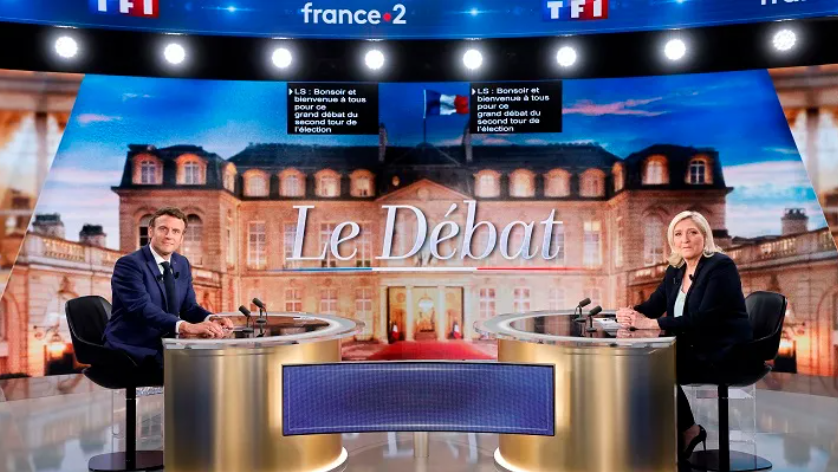
On the cusp of the French presidential election, the far right has never been stronger in the land of ‘liberté, égalité, fraternité’.
Spectre of surging far right as France prepares to vote

Marine Le Pen’s concerted attempts at softening her image – she and her cats are a favourite of the social media ‘idiotocracy’ – appear to have borne results.
How Putin’s invasion is shining a light on an ugly side of French politics
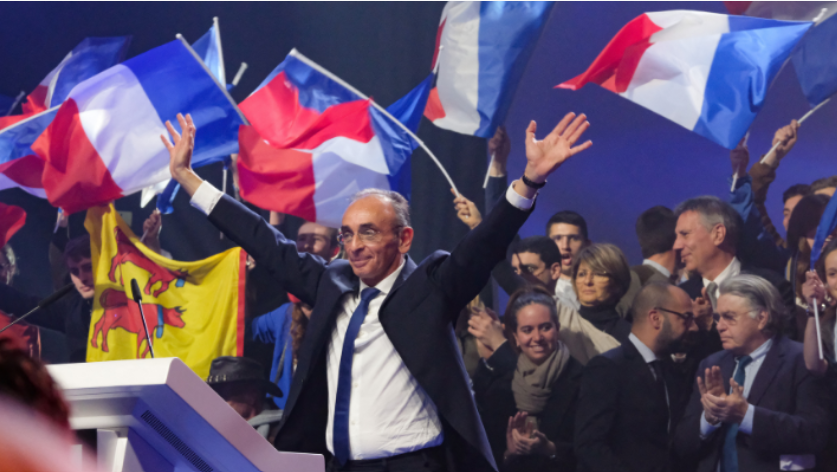
As the fallout from Putin’s invasion continues, French presidential candidates who have previously been sympathetic to him have been left frantically back-pedalling.
Chaotic ‘yellow vests’ exposing fragility of France
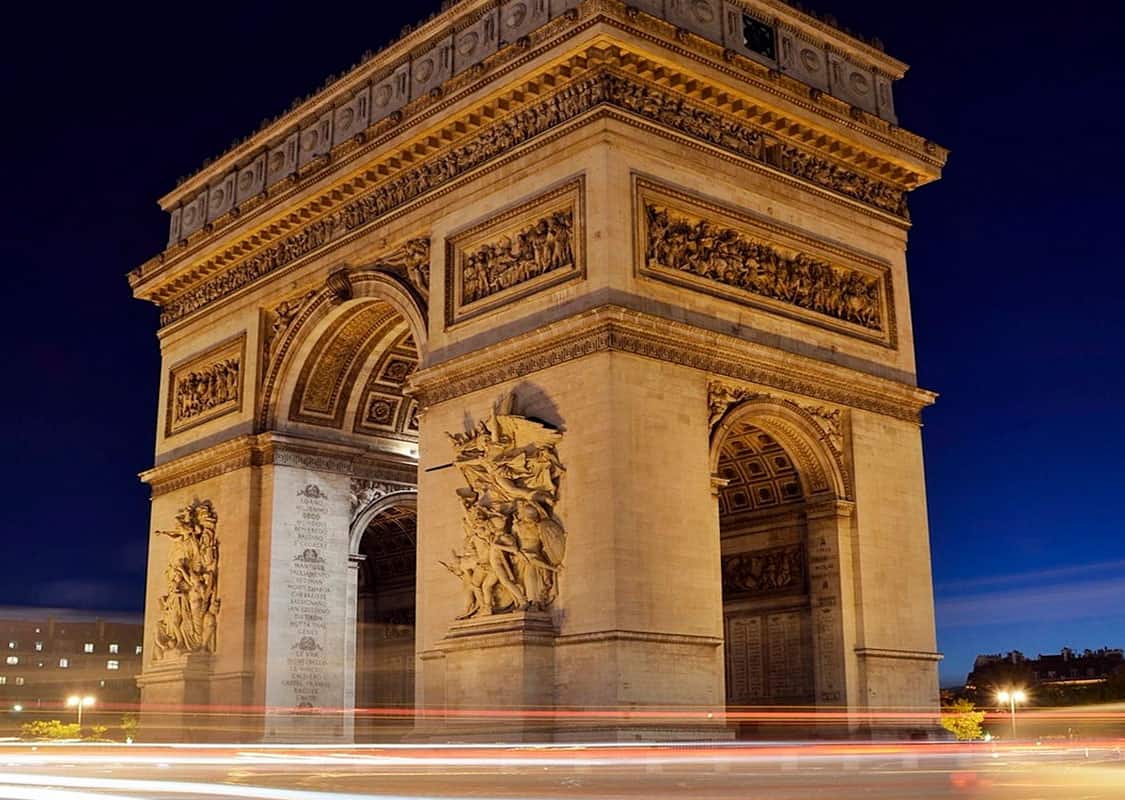
The anarchic “yellow vests” movement is a disaster for France and a setback for Europe, and it may prove decisive in the advance of European populism.
For an Australian, the iconic sequence turned on the ransacking of the Arc de Triomphe from within. Outside, the flame of the eternal soldier, first lit after the unconscionable carnage of World War I, remained miraculously alight as its dais was pelted by beer bottles.
And yet the nihilism of these fringe hooligans served to evoke the significance of things far greater than small fuel tax rises, now scrapped.
At stake is France facing up to, or yet again not, the challenges of accumulated economic and political problems that have dislocated the nation, discredited the governing class and brought power within reach of populists.
If Emmanuel Macron’s reform project comes undone France may have squandered its last opportunity for substantial reform “in a democratic and peaceful manner”, to quote economic historian Nicolas Baverez.
The signs are not good: France’s quarterly growth forecast has halved in the past six weeks and wiped about €15 billion ($24bn) from the national economy. European elections in May risk becoming merely a referendum on Macron, while a threemonth national “consultancy” will further slow momentum. From here on, any kind of revenue-raising exercise via taxation is going to be hard to sell.
Insurrectionary street politics lies at the heart of France’s DNA. Not just in 1968; in 2005, rioting in the depressed immigrant suburbs of Paris led to 20,000 cars being torched in three weeks. The much publicised Cronulla riots that year led to the “dismantling”, as the Financial Times memorably described it, of 40 vehicles.
But the familiarity of political violence shouldn’t mean minimising its significance. The recalcitrants are right: the French pay too much tax, more than any of their OECD counterparts. Ordinary people are getting desperate. The worry, though, is what that desperation may bring. As things stand, populists are the only political alternative to Macron and his La Republique En Marche party.
The fragility of France’s politics today, with its faltering economic model, make it an open boulevard for populism: the weakness of its informal, as against formal, institutions; the social atomising of its society; the way populist thinking has penetrated the mainstream; the strangeness of France’s ongoing fascination with radicalism of both the Left and Right.
Primed by social media, the yellow vests are a brilliant example of directionless modern agitation in politics. The movement is accurately viewed as populist, but it is a mishmash seeking less tax but more government, participative democracy but strong leaders. It blames problems essentially on the ill will of elites. As Harvard political scientist Yascha Mounk has remarked, many of the yellow vests seem to believe that Macron could change their lives overnight if he wanted. The yellow vests, then, should be read not only as populism but as populism taking greater hold in a country with a kind of creeping sympathy for it.
Before the 2017 presidential elections, the National Front (FN), now rebadged the National Rally, won municipal, European and regional elections, increasing its vote at each poll. FN’s Marine Le Pen came second to Macron — ahead of the main parties — with a record number of votes in both rounds.
The traditional so-called republican front, where other parties call for a final-round vote against the pariahs, worked less efficiently than previously.
And there were major developments: a prominent minor party entered into an electoral agreement with the extremists (Nicolas Dupont-Aignan’s Stand Up France); assorted minor figures of the mainstream Right party, the Republicans, joined the FN between rounds; and a few prominent public intellectuals such as historian Emmanuel Todd and philosopher Michel Onfray, did not call for a vote to block Le Pen.
The most serious faux pas, however, in much of the analysis of the 2017 election was to argue that Macron defeated populism convincingly in the second round. This was taken as evidence that the French will never vote for an extremist in the second round. But they could very well put two populists in the lead in round one.
They almost did. Macron was placed first with 24 per cent, followed by Le Pen on 21.3 per cent and another populist, Jean-Luc Melenchon, a soak-the-rich revolutionary arguing for a 100 per cent top tax rate, scored 19.6 per cent. Add the 7 per cent who voted for various Trotskyist and sovereignty candidates and the first choice of almost half the French voters was a populist.
It’s here that the underlying fragility of French politics is clearest. Never elected, unknown to the general public three years before, Macron staged a veritable revolution at the ballot box. The yellow vests are in a sense his flip side. Who’s to say a figure as confirmed a democrat as Macron might not emerge as quickly? At the moment, though, there’s no one.
How did France’s brilliant young President, Europe’s great reform hope, go so fast from golden boy to the target of blazing insurrectionary violence?
The popularity of French presidents never lasts long; expectations of the new President were uncommonly high, and France’s modern capitalist economy is not working. As always there’s nuance: wealth is more fairly distributed than in the US or Britain, but it comes with chronically low growth, crippling tax, high unemployment and debt, now almost 100 per cent of gross domestic product. The last time the jobless rate dipped below 7 per cent was 1977; the last time the national budget was balanced was 1974.
The welfare state, meanwhile, has become a vastly expensive pipe factory of complexity, mightily hard to fund. France, with 65 million people, has 500,000 more public sector workers than Germany, with 82 million people. What used to be called French corporatism is another problem, with five trade union confederations and often multiple unions across sectors.
Government, audit and think tank reports since at least the mid-1990s have called for similar things: democratising an education system that favours the elite, and a coherent approach to industry when deindustrialisation has been swifter and deeper than elsewhere. Industry is uncompetitive, and low margins and high labour costs undermine the capacity to invest in export industries.
The French crisis carries lessons for all Western democracies. At the barricades, the far Right and far Left have joined forces, united in anger, a probable precursor to future politics if mainstream parties fail to argue the benefits of necessary structural reform.
Historians of Europe may look back on the yellow vests as the moment when populism drew in on the mainstream. Between two-thirds and three-quarters of respondents to one opinion poll said they were sympathetic to the yellow vests, even after the most shocking violence — far higher than the 52 per cent in Britain who voted for Brexit or the 40 per cent in the US generally held to constitute Donald Trump’s base.
The charitable view is not that Macron has dropped the ball but that he is realising the hard way that reform must be undertaken with, and not against, the wishes of the electorate. Who knows? The brilliant 41-year-old may yet renew and reinvent himself.
Pictures: https://www.istockphoto.com/de/fotos/proteste-frankreich?mediatype=photography&phrase=proteste%20frankreich&sort=best
Macron visit: how Paris is newly resurgent, despite Trump’s Jim

Prime Minister Justin Trudeau welcomes French President Emmanuel Macron to Centre Block on June 7 during Mr. Macron's visit to Canada before the G7 summit in La Malbaie, Que. The Hill Times photograph by Andrew Mead.
Macron’s election in May 2017 lifted French business and consumer confidence to record levels. And the impact continues to be felt today in terms of tourism, the property market, and law and order.
Who remembers Jim, United States President Donald Trump’s elusive, go-to guy on all things Paris?
Never accorded a surname by the White House, no reporter could trace him, but “Jim” gained a degree of notoriety for advising Trump against visiting the City of Light, because lax immigration policy and tight gun laws had made it a cesspool of foreign extremists. “‘Paris? I don’t go there anymore,’” Trump relayed Jim telling him. “‘Paris is no longer Paris.’”
So how’s Paris faring now — despite Jim’s warning — as French President Emmanuel Macron visits Canada this week, stopping in Ottawa, Montreal, and Quebec City, before the G7 summit in La Malbaie?
The short answer is better, though with caveats.
Macron’s election in May 2017 lifted French business and consumer confidence to record levels. And the impact continues to be felt today in terms of tourism, the property market and law and order. Paris is not France, as the French are fond of saying, but it is a population of 12.4 million people.
Confidence is one of the great vagaries of contemporary economics (an excess of it marked the U.S. subprime mortgage crisis; a lack of it prolonged the Greek debt crisis), but its wavering hand looms large behind the economic uptick in France. Like the old market adage “a company has a problem when the markets say that it does,” Macron is perceived as pro-business, so he is.
But is France improving because of confidence in Macron? Or is France doing better, hence the confidence in Macron? His 44 per cent approval rating after a year in office is well above his two most recent predecessors. Either way, the improvement in growth, investment levels, and corporate profitability is also due to what he’s actually doing, to liberate employment for example.
Tourism to France has recovered since a slight downturn linked to the 2015 terrorist attacks, with 88 million tourists visiting last year. La belle Paris attracted 33.8 million tourists, up 2.9 million from 2016. France remains the world’s first tourist destination by visitor numbers, though it has slipped to fifth by tourism revenues behind the U.S., Spain, Thailand, and China.
Paris private property sales grew 17 per cent last year, despite price rises of about 10 per cent across the board. The mid-market east is a good overall gauge (the 11th district and nearby sections of the 12th), where prices are now a colossal €10,000 to €12,000 a square metre.
Parisians voting with their feet
The downside, aside from the infuriating recurrence of strikes—currently by rail unions, whose members are retiring at 50 when the state rail carrier is €50 billion in debt — is that Paris is expensive and congested. The city is losing about 7,500 residents a year, as populations rise in most of the developing world’s equivalent cities. Greater London, for example, has grown from 6.6 million to 14 million since 1980. Meantime, unemployment in Paris is 7.4 per cent, substantially less than the rest of France but higher than the full employment of Toronto and Vancouver, New York and Los Angeles, London, Sydney, and Melbourne.
Gentrification has grown the number of high-skilled workers in Paris (cadres in French, there’s no exact English equivalent), from a quarter of the population to almost half, according to economic historian Nicolas Baverez (up from 25 per cent to 46 per cent); the working class declining from about one in five to less than one in 10 (specifically, from 18 per cent to seven per cent). Public housing allocation by district serves to maintain a degree of social diversity, putting a brake on the kind of uniform, seemingly endless-bars-and-hairdressers gentrifying seen in some North American and Australian cities, but pressure on supply has pushed the cost of private housing up.
At the behest of the president, the new approach to law and order is marked by a return to proximity policing, with local police numbers on the increase. There are funding issues, when City Hall is already €5.5 billion in debt (on a total operating budget of €9.5 billion). But there’s a degree of cross-party consensus: proximity policing and emphatically not enabling greater access to guns à l’américaine are believed to be central to avoiding a repeat of the 2015 attacks that killed 130 people.
When Donald Trump told the U.S. National Rifle Association the Paris attacks could have been avoided if Bataclan concert-goers were armed — his hand cocked like a pistol while mouthing the “boom boom” of a serial gun-killing — former French president François Hollande called Trump’s behaviour “shameful” and “obscene.” A former terrorism victims’ association representative messaged Trump on Twitter, in English: “Go §#@% yourself (you can use a gun if you want).”
And Jim? Given Trump’s wont to confuse fiction with reality, perhaps Jim was only ever a narcissistic president talking to himself, a kind of reassuring imaginary cohort, as Trump sought to adapt to the alien surroundings, not to say foreign policy challenges, of his big new job at the White House.
In any case, Jim has made no comment on what might be called the Parisian renewal. Trump, meantime, has visited the great city.
Australia is about to get a dose of French president Emmanuel Macron’s charm
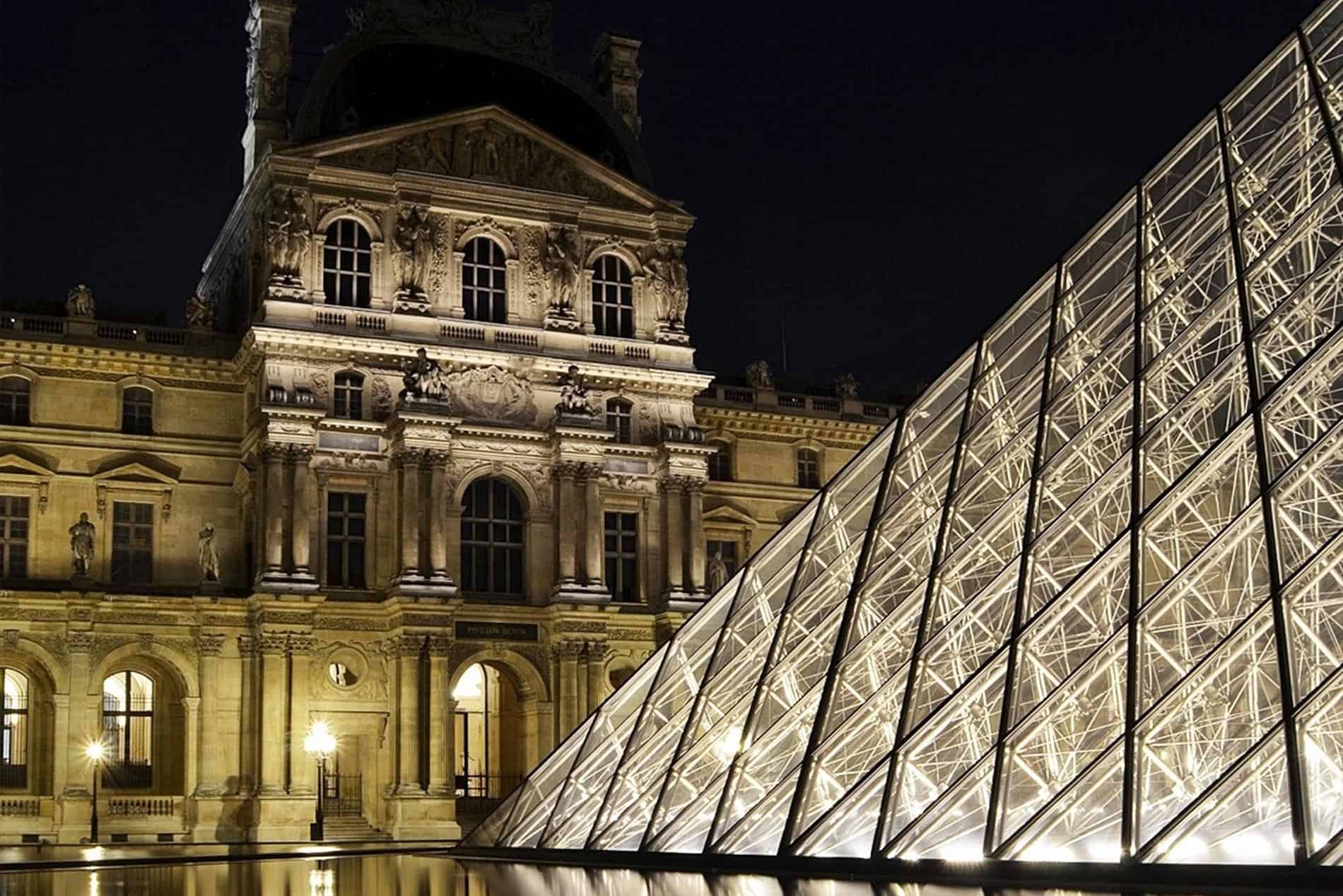
AMERICANS have just witnessed and Australians are about to get a taste of Emmanuel Macron’s big-vision thinking, not to say the galvanising effect of it, when he arrives in Australia today.
Galvanising by dint of what it is — multilateral, pro-European, inclusive — and by what it is not: acutely divisive, Donald Trump-type rough-talking.
China’s role in the Pacific, defence ties, climate change, economic issues — and cuisine — will be high on the agenda when Macron meets with Prime Minister Malcolm Turnbull.
Officials said the French president would also discuss security in the South Pacific on his first bilateral visit to Australia. Australia has a $50 billion deal to purchase 12 next-generation submarines from the French. Cuisine will be discussed at a lunch on Wednesday with Australian and French chefs.
In international diplomacy, Macron has shown that flattering morally tainted hands doesn’t mean entering into a Faustian pact with their owners.
He combines a certain pride in the office of president — receiving Russia’s Vladimir Putin at the Palace of Versailles, President Trump at the Eiffel Tower, while lending the Bayeux Tapestry to the Brits — with a cool kind of sleeves-up communicability.
Check out the laid-back style, what a young French colleague of mine calls the “coolitude”, of Macron’s Twitter videos.
The key concept chez the French president, though, has been coherence based on principles. He was elected on a program to shake up France and is implementing it.
In the workplace, he’s introducing enterprise bargaining (moving away from branch-based negotiations) and making the French industrial appeals court faster and cheaper, and so more proemployment.
Elsewhere too, reform is on the cards. Reform of education and training at the state-owned railway company — 50 billion euros ($80 billion) in debt with train drivers retiring at 50; a law to “moralise” politics; tax reform for pensioners (they will pay more), and the wealthy (dead capital stuck in highend real estate will be more heavily taxed). These changes have dizzied the electorate.
But the bottom line is that France has to be fixed. Those who are working should be taxed less and those who are no longer working must contribute a bit more.
The IFI (formerly ISF) wealth tax in fact brings in little revenue for the government, but it’s a symbol. Again then, there’s coherence.
The result is that by the usual indicators, the French economy is improving. The key will be whether the positive impact of reforms flows through to ordinary people by the next elections in 2022 (hence the speed of their implementation).
Unless sustained, the current barely 2 per cent annual growth rate won’t be enough to boost wages or create jobs, or help the middle class into housing when city prices are elevated.
But the stakes are high. Macron’s election torpedoed the traditional parties. Since then, the mainstream right has moved further to the right as Macron siphons off its traditional base.
Macron himself rose from nothing to the presidency in a year. So there’s every reason to believe someone else could do the same, if Monsieur Macron does not deliver.
Those newcomers, even if mutton dressed as lamb, might very well come from the populist space.
French national elections mean Macron’s ‘revolution’ is now complete

The shorthand on June parliamentary elections in Europe looks like this: newly-elected French president, Emmanuel Macron, 350 seats; British prime minister, Theresa May, minus 12 seats.
Pictures: https://www.istockphoto.com/de/fotos/french-elections?mediatype=photography&phrase=french%20elections&sort=best
Will Macron’s fledgeling political movement break out and fly, or die in the egg?

Just as the fog was beginning to clear for France, with the election of positive-thinking reformist President Emmanuel Macron, old demons of the French political culture have again reared their ugly heads. And the consequences could be dramatic.
Two ministers have become enmeshed in ethics scandals that risk compromising weekend legislative elections for the government, rendering Macron’s revolution stillborn via the ballot box. Whatever his successes out-tweeting — out-smarting — Donald Trump and Vladimir Putin on the international stage, his first weeks have been sullied at home, and he will be blamed. But to what extent?
Should Macron decide to dismiss Richard Ferrand, his regional development minister and former campaign manager, and junior minister Marielle de Sarnez — both facing separate media allegations of sleaze — he would be charged with summoning a spectacular storm upon the government. If he doesn’t, and it appears at this stage that he will not, he could pay the price for ignoring one of the biggest lessons of the current electoral cycle: the French are tired of scandals and want exemplary behaviour from politicians.
The dilemma of France’s youth: vote fascist, vote technocrat or don’t vote at all?
As in cinema, France is home to auteur politics, where the central figure of the president is responsible for story, script and direction. Consider that he’s also perceived as the star of his own movie, and one begins to see the power and responsibility of the president as “republican monarch” in the French political system.
The French presidency is about great politics, in the Platonic sense of would-be great men facing a series of make-or-break tests in a febrile kingly court atmosphere (France has never had a female president). Seen in the these terms, Macron is the latest in a long line of great and flawed presidents, from the Olympian war leader and statesman Charles de Gaulle to the Florentine intellectual Francois Mitterrand, but also including the pre-revolutionary kings of France (on election night, Macron emerged walking sombre and solitary among the classical statues of the Louvre).
With parliamentary elections in two rounds on June 11 and 18, Macron’s next major test, as it were, is in casting. The centrist broke the back of the French party system of left and right in May presidential elections; named as promised a cabinet drawn substantially from civil society with members from both sides of politics; and reinvigorated the French trope of the “Jupiterian” president — referring to Jupiter king of the gods in Ancient Rome, though equally, if unintentionally perhaps, the distant orbiting planet that, floating above the melee, doesn’t actually touch the Earth of everyday problems. In France, the fuss and muss of ordinary, as against great politics, is the job of the hapless prime minister, also appointed by the president.
France has been in a rare, glass-half-full kind of mood lately. Macron’s win felt like relief then a rampart against rising populism in the West, with Trump pushing the US to the verge of institutional crisis and a Brexiting Britain stuck in electoral mode (Manchester and London traumatised by terrorism; the city under pressure; the currency down 15%, hurting wages and savings).
Rundle: on the troubled streets of a France that’s burning
Confidence in Macron as President is up some 10 percentage points since the poll, raising the possibility that his fledgling Republique En Marche (REM) could now win an outright parliamentary majority — meaning 289 of the 577 House of Assembly seats (one poll according REM even 320-350 seats). Alternatively, he could win enough seats to govern with the left of the right and the right of the left. Herein’s the rub, in fact, because a hostile Parliament would curtail Macron’s capacity to counter nationalism, structure European reform with German Chancellor Angela Merkel, and implement the kind of liberalising economic reform France so desperately needs.
Enter the ethics controversies, with Ferrand facing “preliminary judicial investigation” for allegedly helping his romantic partner in a 2011 real estate deal with a mutual insurer he managed. He also stands accused of employing his son as a parliamentary assistant and failing to declare it. Sarnez’s name appears on a list of 19 members of the European Parliament subject to a preliminary investigation for allegedly employing party operatives as parliamentary aides.
The affairs are prosaic and complex but starkly echo the presidential campaign, when accusations of enriching family members sank mainstream right candidate, Francois Fillon. Macron has made a law to “moralise politics” his first major legislative test, with surveys constantly showing that honesty is the most sought-after quality in politicians for the French.
The current controversies have put a grain of sand in the REM machine. If this proves to the point of putting a major brake on Macron in the Parliament, his great revolution risks dying in the egg. Again the French glass would look distinctly half-empty.
France is not out of the woods yet, and these parliamentary elections will be a watershed.
Emmanuel Macron’s election will change Europe

Does the French presidential election, after the American one, confirm Friedrich Nietzsche’s assertion that “every profound spirit needs a mask”? The shallow spirit, by contrast, is usually plain to see and can be found on American reality television.
Emmanuel Macron is the moderate revolutionary France needs

The dominant sentiment is one of relief that centrist Emmanuel Macron has won through to the second round of the French presidential election. Barring some sort of political accident, it’s now highly likely he will be the next president of France.
The sorry spectacle of the French presidential election

A far-left candidate’s meteoric rise has given a surrealist hue to the already remarkable French presidential campaign. Heading toward the Sunday election, firebrand radical Jean-Luc Mélenchon is among four top candidates polling within a margin of just 4 percentage points.
The outcome is too close to call. But it’s possible that at least one extremist will reach the May 7 runoff. That both finalists will be populists — one from the radical left and one from the radical right — cannot be ruled out.
Avuncular, loquacious, with a touch of the litterateur about him, Mélenchon, 65, is in fact a soak-the-rich revolutionary who champions Russian President Vladimir Putin and whose political hero is Hugo Chavez, the late Venezuelan leader who ruined his oil-rich South American country — inflation is running at more than 1000% in Venezuela today).
That in a field of 11 candidates, Mélenchon — who wants a top marginal tax rate of 100% — has a following at all, together with far-right National Front candidate Marine Le Pen, shows the farcically low level — the surrealism — of current French political debate.
France’s weak economy, squeezed wages and
high debt and deficits may solidify its voters’
embrace of populists.
This is the first time in half a century that one of the two major French parties is not certain to make the second round of a presidential election. It’s also unprecedented that a first-term president has decided not to run for reelection — a clear admission of failure by President François Hollande.
Of the top four candidates, centrist independent Emmanuel Macron is at 22%, according to an Ipsos poll (down 3 percentage points in the last three weeks); Le Pen is also at 22% (and trending slightly downward), while Mélenchon, barely into double figures a month ago, is now at 20%, having just overtaken the scandal-riven establishment conservative, François Fillon, at 19%.
Another opinion poll, by Elabe, may explain the sorry spectacle. After a television debate, viewers were asked which candidate best reflected their preoccupations: Mélenchon came in at the top, with 26% of the respondents connecting with him; Le Pen, 14%, and Philippe Poutou, a Trotskyist outlier, third at 12%.
That 52% of the French said they felt closest to one or another of these anti-establishment candidates shows the extent of what one analyst called the French electorate’s “monumental anger.”
For more than 30 years neither the French left nor the right has managed to reverse the nation’s economic decline, marked by de-industrialization, a rigid labor market, unemployment stuck at around 10% and exploding public spending. The last time the national budget was balanced it was 1974.
Britain and the U.S., countries with close to full employment, chose Brexit and Donald Trump; highgrowth Netherlands blocked the ambitions of far-right populist Geert Wilders. Now France’s weak economy, squeezed wages and high debt and deficits may solidify its voters’ embrace of populists who variously reject the European Union, banks, big business, the European Central Bank, a market economy, profits, liberalized trade and German Chancellor Angela Merkel.
Further complicating the mix is the possibility that Fillon may yet rise — precisely because he is at least well-placed to block the populists. France has generally been moving to the right and Fillon, a former prime minister, is viewed as strong on law and order, which resonates given that France remains in a Parliament-declared state of emergency, after 230 deaths and more than 800 injured since 2015 in
terrorist attacks.
The big trouble with Fillon, however, is that he presented himself as the presidential-probity candidate and then trashed his own moral example. After media allegations that he paid family members a million euros for work as no-show assistants, he pledged to stand aside if charged over the affair — until he was, in fact, charged over the affair. That his candidacy is at all viable seems incredible, but the threat of the populists is doubtless one reason. Another is probably that, as corruption watchdog Transparency International has pointed out, 1 in 6 French parliamentarians employ family members.
Fillon is another admirer of Putin, so if he rather than Macron should make it to the final vote against one of the populists, one wonders who Putin’s hackers will be looking to help. If two populists win, though, there will be a political earthquake in France, with major ramifications for Europe and beyond.
TRIBUNE : PARIS, UN RÊVE AUSTRALIEN.

Face à l’enjeu électoral français, le journaliste australien, un temps expatrié en France, se souvient du jour de sa première arrivée à Paris qui correspondait à la mort de Miles Davis. Il décrit la capacité qu’a la France de faire rêver un non-Européen.
French election: Fillon & Le Pen — a tale of moral laxity

A Shakespearian twist is required, perhaps, to comprehend the astonishing scenario of moral laxity and personal enrichment, playing out currently in the Old World kingly court of French electoral politics.
Will France be wooed by right-wing populist Marine Le Pen, like the US and Donald Trump?
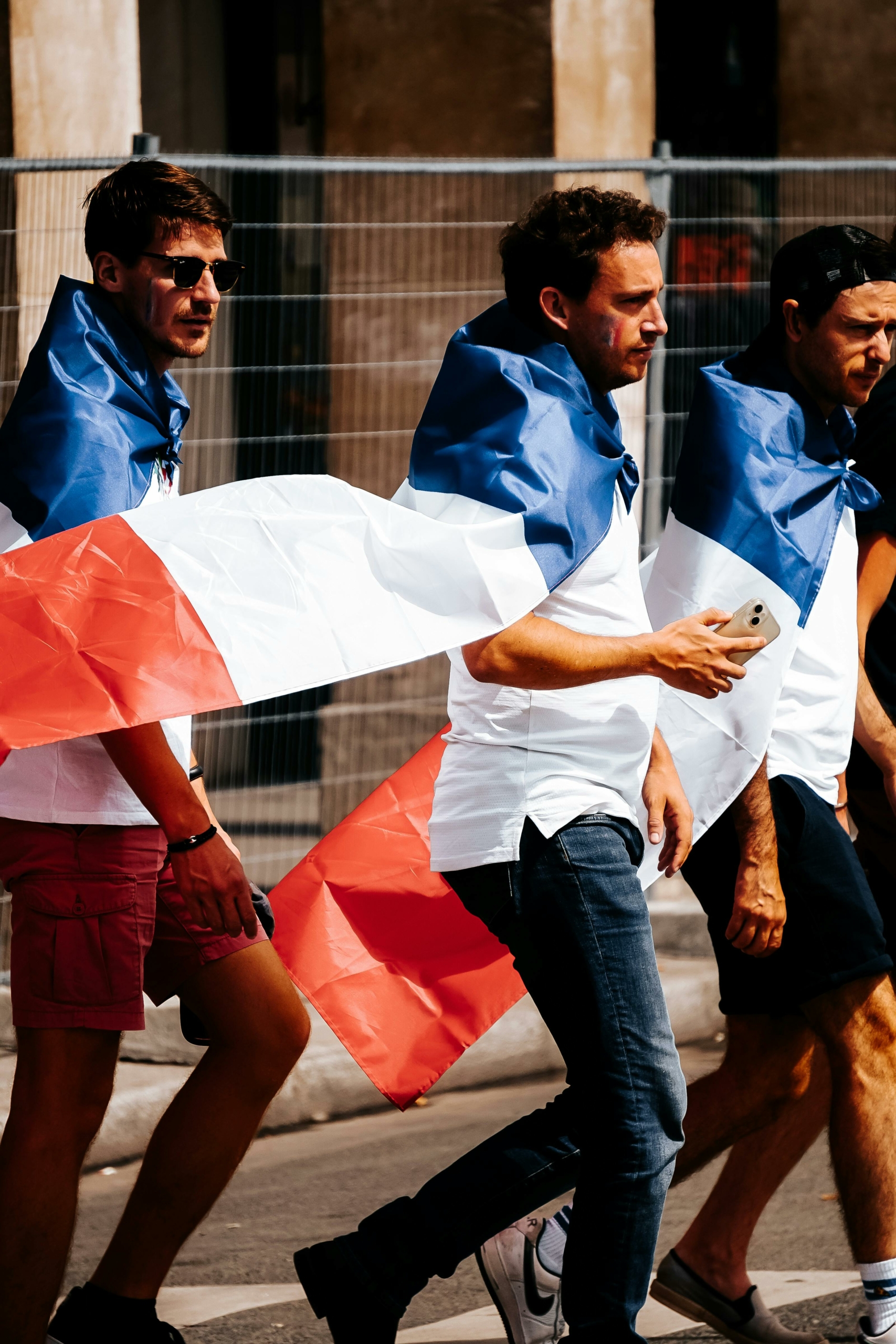
After the stupefying Brexit-Trump sequence, and the Italian referendum result, could far-right National Front leader Marine Le Pen win next year’s presidential elections in France?
Summer of fear: Nicolas Sarkozy the cause of France’s woes, not the solution

Debate surrounding terrorist attacks in Europe this northern summer has morphed into rhetorical overkill, as opportunistic politicians in France in particular focus on “situational dissuasion”, which usually just means regulating access to guns and knives.

